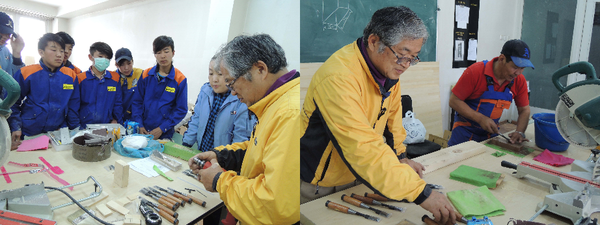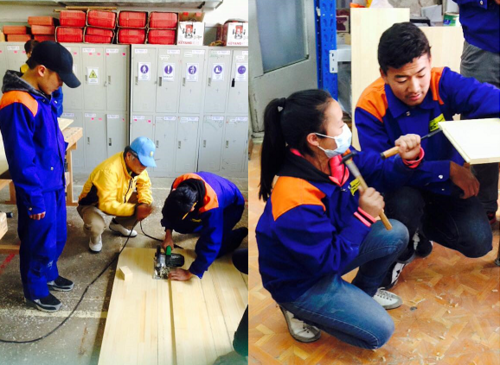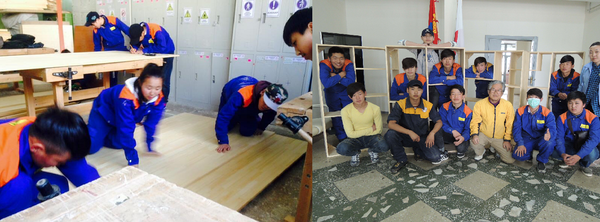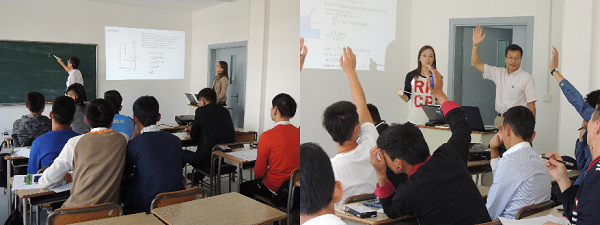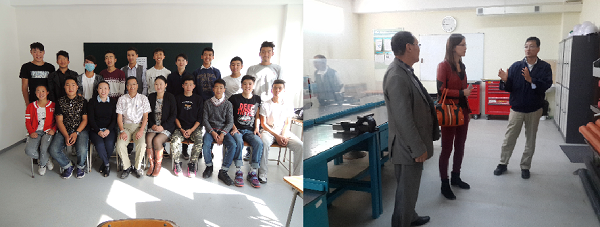
FY2015
The aim of this project is to provide continuous support for the Mongolian government to establish a fully-fledged education system, learning from the Japanese collage of industrial technology (KOSEN) system by establishing a KOSEN model class (of around 30 students) at the Institute of Engineering and Technology (IET) in Ulaanbaatar, Mongolia.
➣ Teachers of the Institute of Technology in Mongolia visited Japan for training (24 June, 2015 uploaded) ➣ Expert of woodworking dispatched to Institute of Engineering and Technology (Mongolia) (25 June, 2015 uploaded)
| Implementing Agency | The Sasakawa Peace Foundation | Year | Implementation year(2/3) |
|---|---|---|---|
| Project Type | Self OperatedGrantCommissionedOther | Year project budget implementation | 19,200,000yen |
From 12 May to 25 May, 2015, three teaching staff members of the Institute of Technology in Mongolia (IET), Mr. Purevdorj Munkhbayar (Vice-president), Mr. Ulambayar Bayarbat (mathematics) and Mr. Banzragch Ganzorig(information technology), visited Japan for a training program at National Institute of Technology Tomakomai Collage and National Institute of Technology Fukui College. This training aimed to deepen their understanding about teaching methods of specialized subjects, research facilities, practical education using experiments, and education system of KOSEN (College of Industrial Technology) with the cooperation of Japanese KOSEN colleges. At both Tomakomai Collage and Fukui Collage, the teachers of IET had training on matters important for the establishment of KOSEN education system in Mongolia. These included KOSEN education system, school management, and guidance to students. The teachers observed classes in a laboratory at Tomakomai College to learn teaching methods using experiments. At Fukui College, they were also introduced to academic and career guidance system incorporating with internship schemes as well as the college's contribution to the local community through cooperation with local companies.
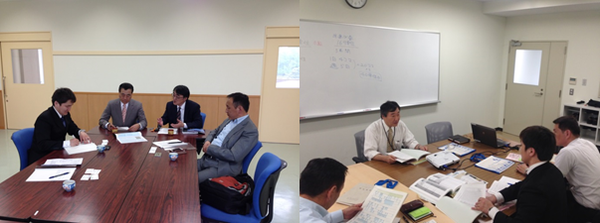
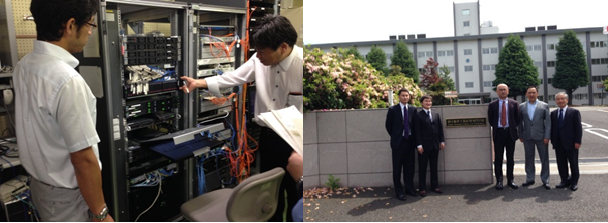
From 15 May to 1 Jun 2015, Mr. Mitsuo Takeda, the Managing Director of Tsuzuki Cooperation, who also teaches "monozukuri"* at Tokyo Metropolitan College of Industrial Technology, was dispatched to Institute of Engineering and Technology (IET) in Mongolia. He introduced distinguished woodworking techniques developed in Japan to students of the KOSEN model class established within IET. The students were taught these techniques through practical training. Teaching staff of IET also joined the training to learn woodworking skills and deepened their understanding of effective teaching techniques. Considering the existing woodworking in Mongolia, Mr. Takeda brought Japanese tools such as chisels, hand planes, iron drills, sumitsubo (Japanese traditional carpenters' ink liner), and grindstones to Mongolia. The students learnt how to use these tools to grain chisels, measure and mark wood, joint wood parts and so forth. As a result of the training, students made solid bookshelves using these skills. *"Monozukuri" literally means making or creating things in Japanese. The term however is used to refer the spirit to produce not only great products but also have the ability to continuously improve techniques and the production system.
